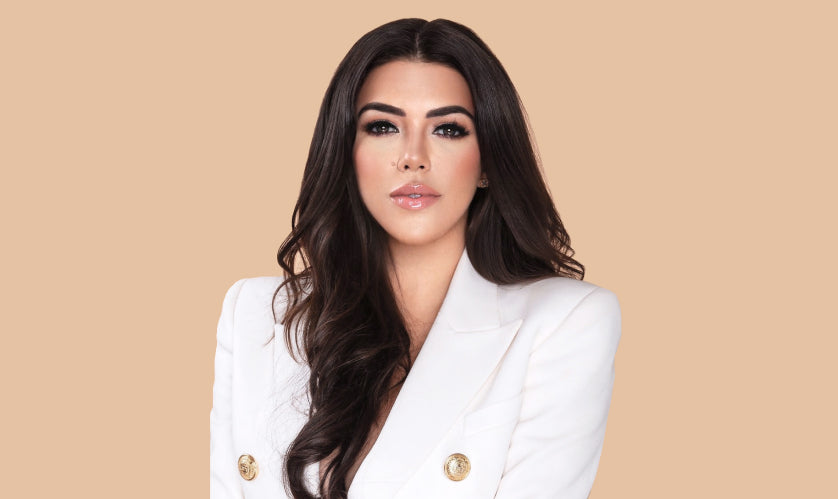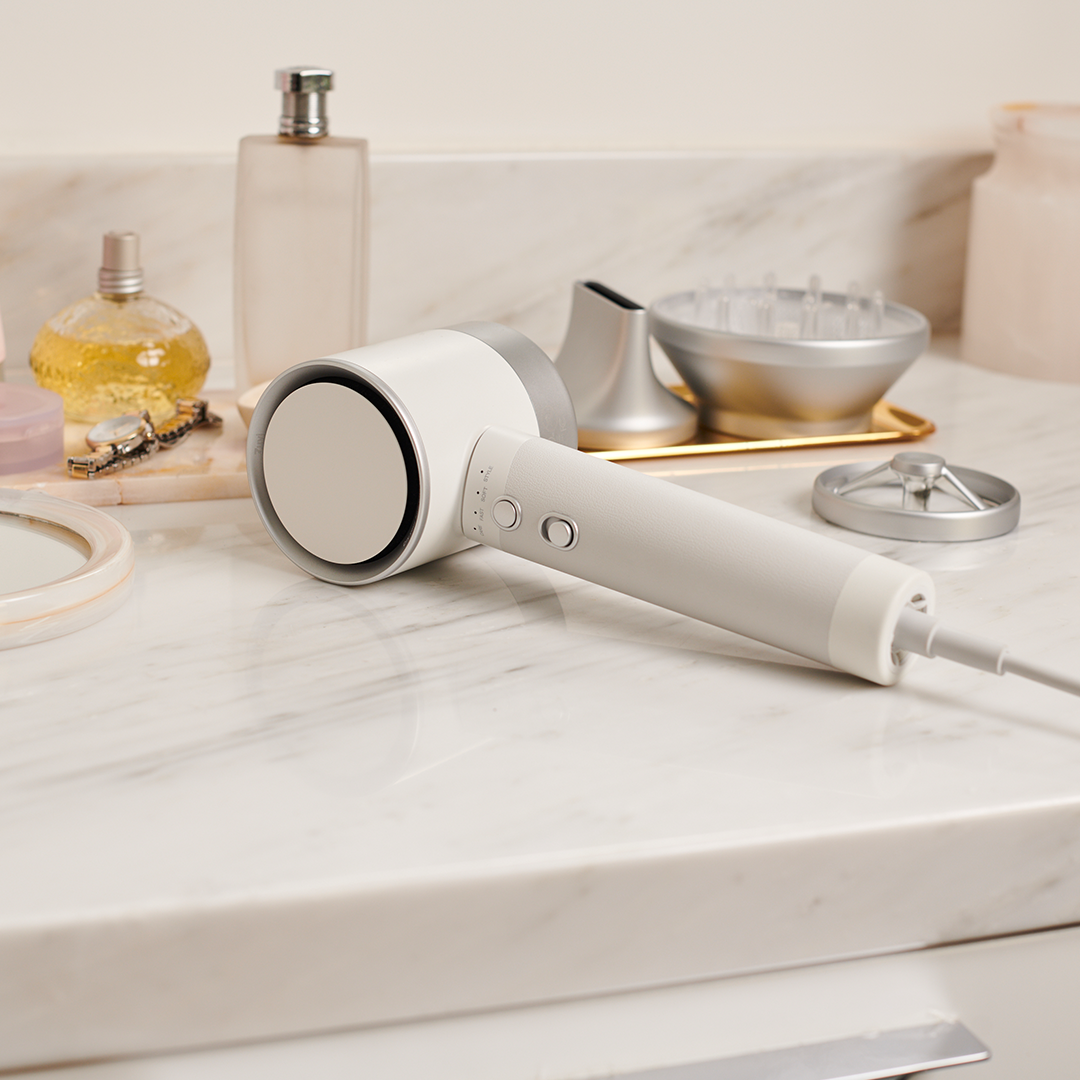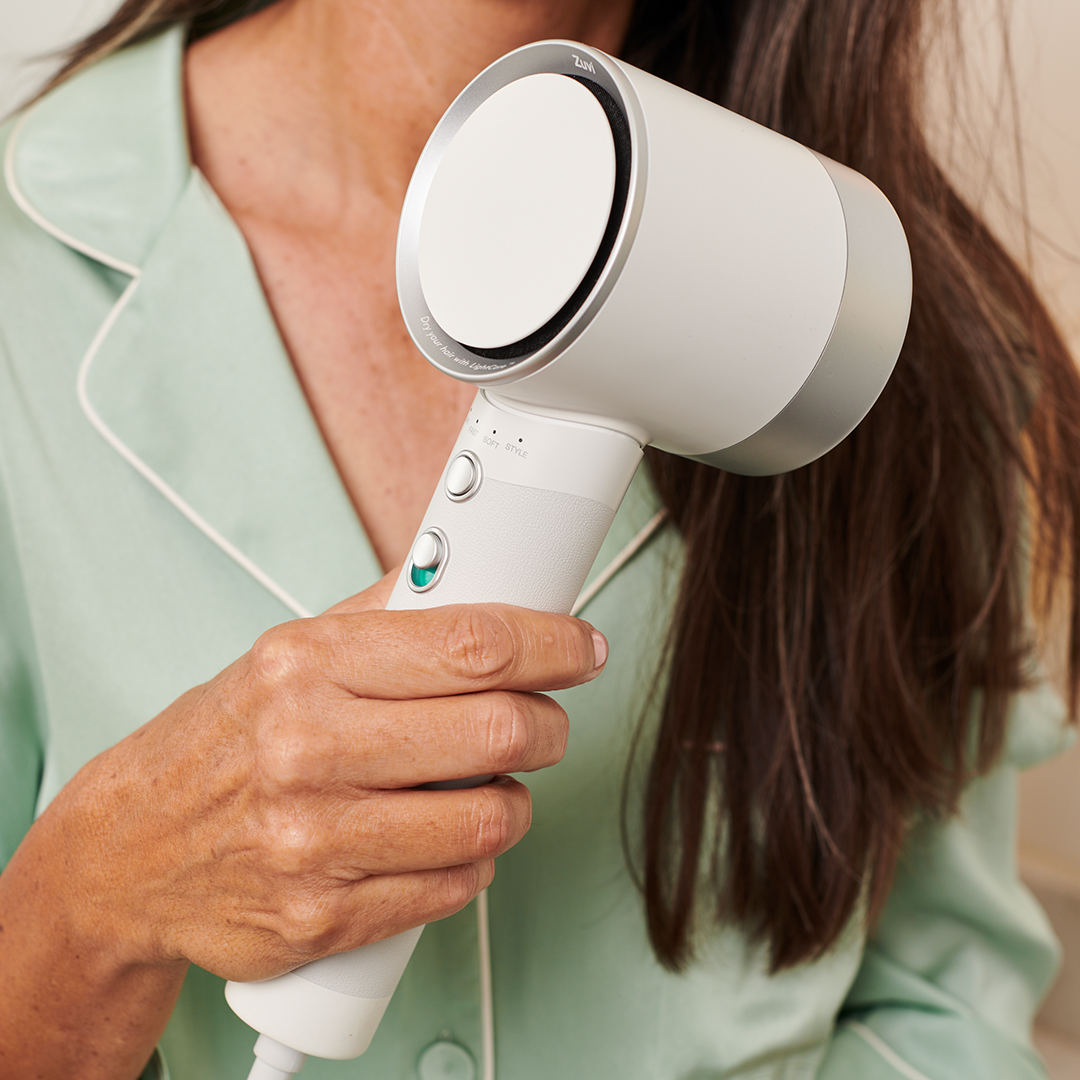Author: Hannah Gaboardi (Trichologist)
Hair aging is a natural process that we all experience as we grow older. While it's impossible to completely reverse or stop the aging process, there are strategies and lifestyle changes we can implement to slow down the visible signs of hair aging and promote healthier-looking hair. By following a nourishing hair care routine, protecting hair from damage, and seeking professional advice when needed, we can maintain healthy and shiny hair and embrace the beauty of each life stage our hair experiences as we age.
Hair Aging at Different Life Stages
At my practice, we treat patients of all ages. However, most patients start experiencing signs of hair aging in their 40s, with thinning and fragile hair as the most common symptoms. Patients between the age of 50-70 tend to have more noticeable hair aging, so we treat them with topical medications, PRP (Platlet-Rich Plasma Injections), bespoke supplements tailored to blood tests, and product recommendations that are very nourishing to the hair shaft.Understanding the things that manifest at each life stage can be useful in understanding how to best care for your hair and futureproof!
20s and 30s:
During this stage, minimal signs of hair aging are typically seen. Hair is generally at its healthiest and most vibrant. However, occasional greying or thinning may start to occur in some individuals. This tends to be the age group that experiments the most with hair color and heat styling, so I always recommend that clients incorporate regular cuts and a quality hair product routine to counteract this.
40s:
The first noticeable signs of hair aging may appear in the 40s. Grey or white hairs may become more apparent, usually starting at the temples or along the hairline. Hair may start to thin slightly, particularly around the crown and parting areas. Texture changes may also occur, with some individuals experiencing drier or coarser hair.
50s and 60s:
Significant greying of the hair continues and spreads throughout the scalp. Hair thinning becomes more noticeable, and hair loss may be more prevalent. Changes in hair texture become more prominent, with hair becoming thinner, finer, and more brittle. The scalp may become drier, potentially leading to increased scalp irritation or dandruff.
70s and beyond:
Hair thinning and loss may be more pronounced, resulting in a visible scalp in some areas. Hair density decreases significantly, and the hair becomes more fragile, brittle, and prone to breakage. Texture changes continue, with hair becoming finer, wiry, or even softer. Grey or white hairs may become thinner and more delicate.
Principles Behind Anti-ageing Hair Care for Fine/Thin Hair
When it comes to addressing the signs of hair aging, especially for fine/thin hair, there are several important hair care principles that I recommend to my patients.
- Strengthening hair: Choose products that promote hair strength and resilience. Look for ingredients like biotin, keratin, collagen, or amino acids, which can fortify the hair strands, reduce breakage, and improve overall hair health.
- Adding volume and texture: Use volumizing products like mousses or root-lifting sprays to add volume and texture to fine/thin hair, creating the appearance of fuller, thicker hair.
- Nourishing and hydrating the hair: You can also use gentle sulfate-free shampoos and conditioners specifically formulated for fine/thin hair. Look for products that provide moisture and hydration without weighing down the hair. Avoid harsh ingredients that can strip away natural oils.
- Protecting from heat and environmental damage: Minimize heat styling and use heat protectant sprays before using hot tools. Wear a hat or use UV protection products to shield your hair and scalp from the sun and protect it from environmental stressors.
- Healthy lifestyle habits: Follow a balanced diet, incorporating iron-rich foods. Engage in regular exercise and stress management techniques to positively impact overall hair health.
- Scalp massage and infrared light therapy: Massaging your scalp for 10 minutes a day can improve blood circulation and promote hair growth. Additionally, infrared light therapy, which involves exposing the scalp to low-level red light, has shown the potential in promoting hair growth.
- Topical medications: Some topical medications like minoxidil can help slow down hair loss and promote regrowth. Consult with a dermatologist or trichologist to determine if these medications are suitable for you.
- Professional treatments: Consider treatments like PRP (platelet-rich plasma) injections, IV hair infusions containing vitamins, or stem cell treatments. These treatments can provide additional nourishment and support to the hair and scalp.
- Silk scrunchies and pillowcases: Switching to silk scrunchies and pillowcases can help reduce friction and minimize hair breakage while you sleep.
- Select right hair tools: For fine and thin hair, improper care can lead to breakage and damage. (Be continued...)
Many people do not realize that...
Many people do not realize that their hair dryer can have a big impact on the health of their hair. A feature I love about the Zuvi Halo Hair Dryer is how it dries at a lower temperature compared to traditional dryers so maintains the hair's cortex. Most conventional hairdryers can heat the hair up to 140 degrees and it’s this exposure to high heat that changes the shape of your hair’s keratin strands which eventually leads to weaker hair that’s lost elasticity and become more prone to damage.
The cortex is the inner layer of the hair shaft and is responsible for hair’s elasticity. When it’s dehydrated it can become brittle and weak.Invest in new technology styling tools like the Zuvi Halo Hairdryer which reduces damage to the hair shaft while styling. It retains over 2x internal moisture and locks in color, resulting in healthier hair. Similarly, if you have a sensitive scalp, extreme heat can cause irritation by evaporating all of your skin’s healthy moisture.
I've tried Zuvi Halo Hair Dryer and have also recommended it to my patients to support them on their hair health journey. One of my patients has been using it for a few months and has noticed a considerable improvement in her hair quality, including extra shine and moisture.
Your dryer can be a crucial factor in overall hair health, and Zuvi Halo Hair Dryer can be a friendlier option if you’re looking to revitalize and rejuvenate your hair.
Are you worried about fine, fragile, or thinning hair? Learn more about how Zuvi Halo could be your haircare partner!




Leave a comment
All comments are moderated before being published.
This site is protected by hCaptcha and the hCaptcha Privacy Policy and Terms of Service apply.